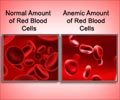Drug-manufacturing company Amgen has concluded that its anaemia drug Aranesp does not increase the chances of death in lung cancer patients.
In a study that health professionals feel was long due, drug-manufacturing company Amgen concluded that its anaemia drug Aranesp does not increase the chances of death in lung cancer patients who are undergoing chemotherapy. This has resulted in sales of the drug shooting up.
Aranesp, along with Epogen from Amgen and Procrit from Johnson & Johnson, are used by nearly a million Americans a year, mainly to treat anemia from kidney disease or cancer chemotherapy.Last month, the Food and Drug Administration imposed strict new warnings on all three drugs after evidence emerged suggesting they could make cancer worse, cause heart problems or hasten death.
Amgen’s woes were deepened when drug maker Roche, ended a clinical trial with lung cancer patients that compared Aranesp with an anemia drug it was developing because of an unexpected number of deaths in at least some of the treatment groups. This suggested that the safety concerns of the drug were serious.
The clinical trial, which has put Amgen back on track, featured around 600 persons who were suffering from small cell lung cancer. It concluded that there was essentially no difference in survival between those who received Aranesp and those who received a placebo.
Although Roger M. Perlmutter, Amgen’s executive vice president for research and development, said in a statement that the results contributed to “reinforcing the neutral impact” of the anemia drugs on patients’ survival, Geoffrey C. Porges, an analyst at Sanford C. Bernstein & Company, said it was too early to assume that Amgen was out of the woods.
“If the study had been bad, it would have been an unmitigated disaster, but leaping to the conclusion that just because it’s O.K. in small-cell lung cancer, that makes it O.K. in head and neck cancer and breast cancer and colon cancer is ridiculous”, Porges was quoted.
Advertisement
Yet Amgen’s troubles are not fading away yet. Representative Pete Stark, a California Democrat who heads the House Ways and Means Subcommittee on Health, sent a letter to his House colleagues yesterday urging a change in Medicare to remove incentives for dialysis centers to overuse the anemia drugs.
Advertisement
Yet many experts in the medical field are wondering why it took Amgen such a long time to provide safety data for their drug. "We prescribe this drug to a million people a year and only now are we seriously examining if how we are treating them is harmful?" says Dr. Ajay K. Singh, professor of medicine at Harvard Medical School. "That's very disconcerting."
Source-Medindia
ANN/V











